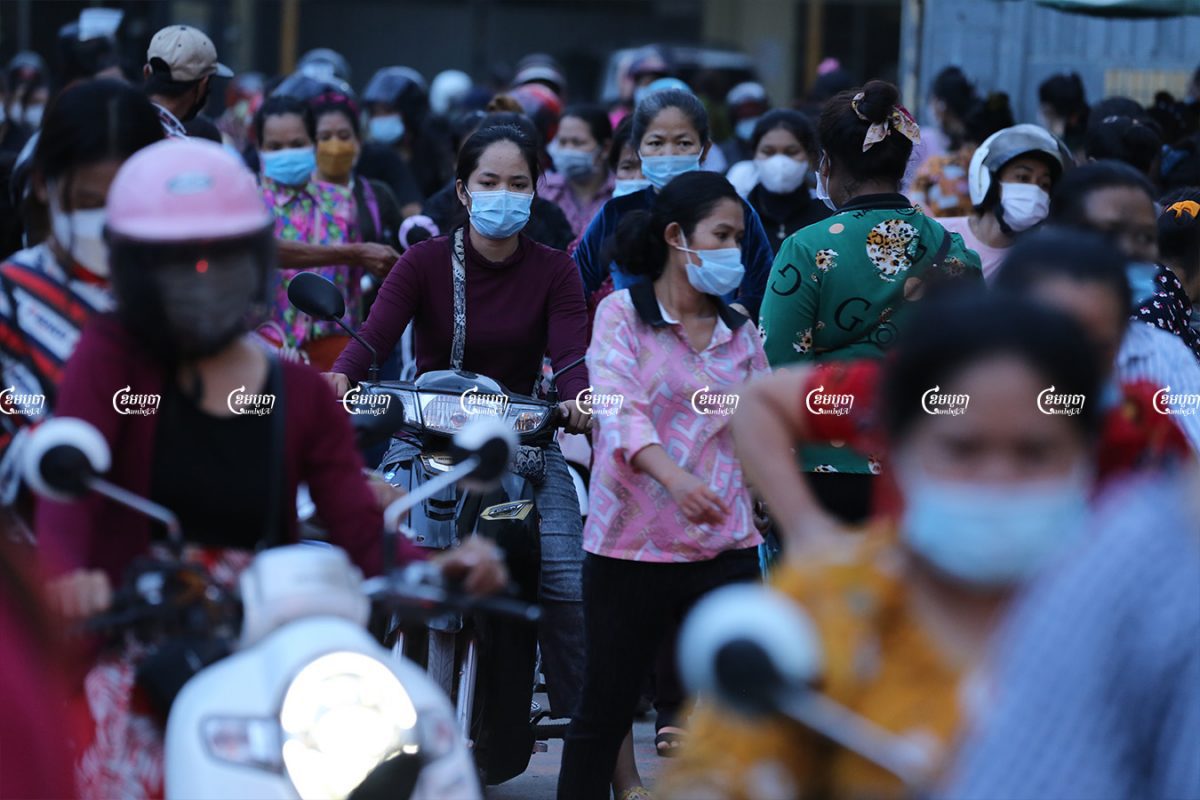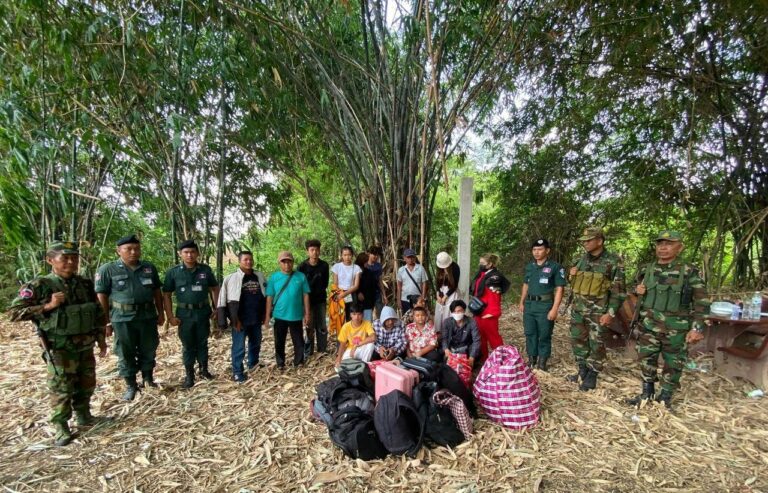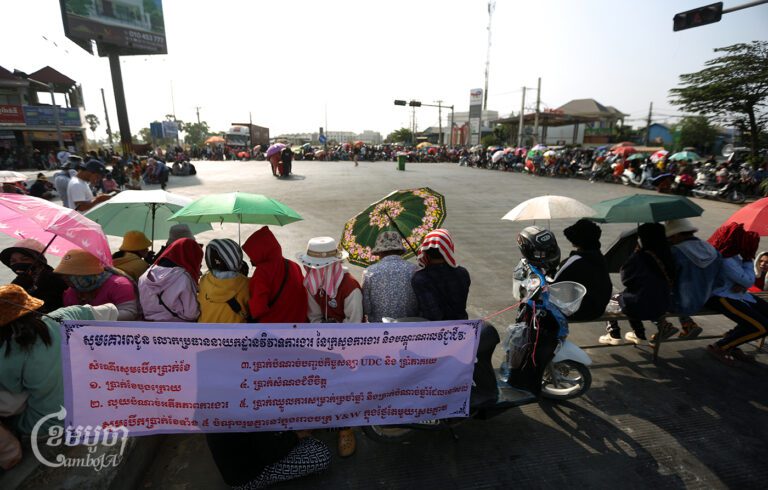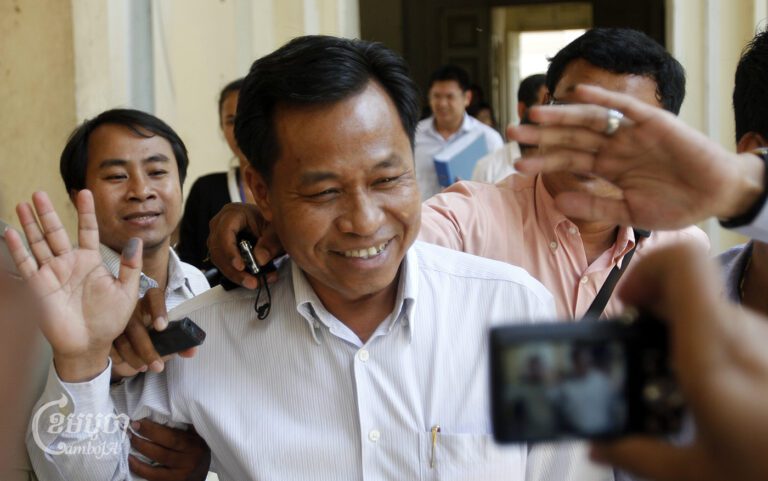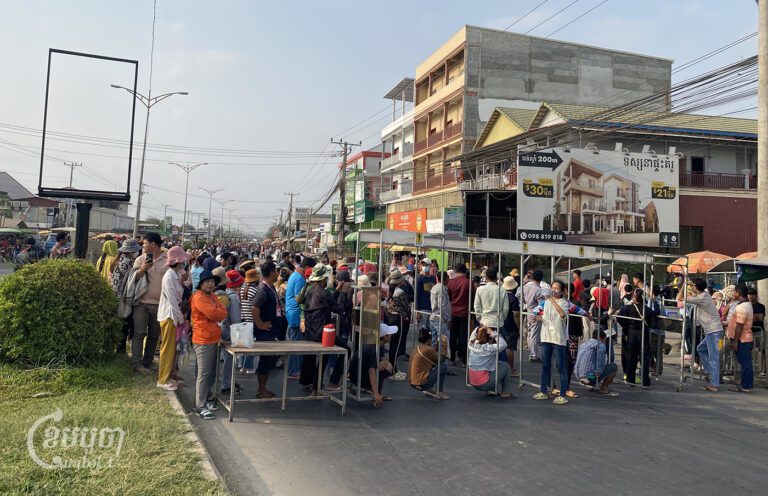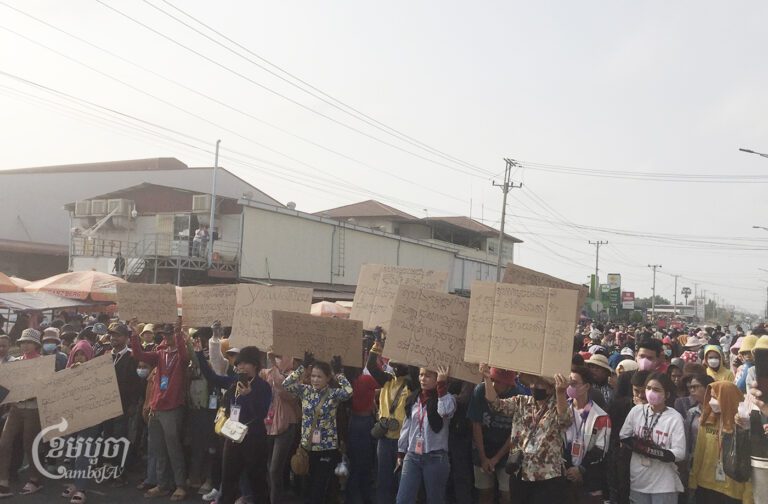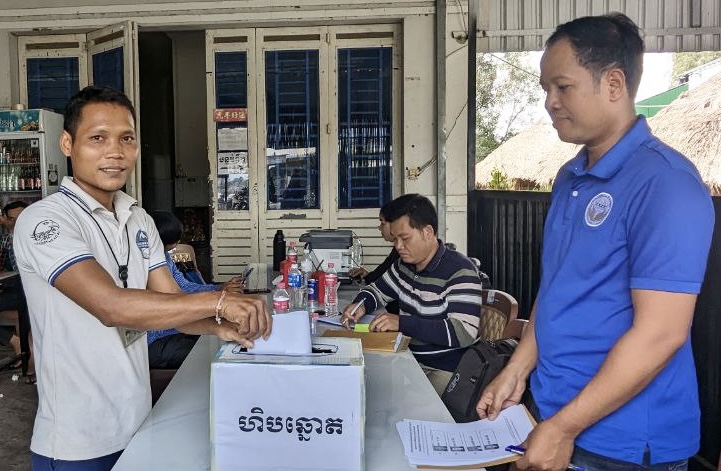Unions and civil society groups are urging the government to prioritize garment workers for a booster dose of the COVID-19 vaccine as the highly contagious Delta variant continues to spread.
Labor rights group CENTRAL called for the government to provide a third dose to workers, who face higher risks of infection due to crowded factories, transportation, and living conditions.
“Garment workers and workers who are being employed at crowded sites should be in the priority group for the third booster dose of the vaccine,” Moeun Tola, executive director, wrote on Facebook last week.
More than 8 million out of 10 million currently eligible Cambodians have received at least one dose of the vaccination, and garment workers were among the earliest groups to be vaccinated. But as the Delta variant spreads, breakthrough cases have been reported among the fully vaccinated. Early this month, Prime Minister Hun Sen announced the government would begin offering a mixed-vaccination booster shot, starting with frontline health workers. Officials at the Thai-Cambodia border have begun receiving vaccinations.
On Wednesday, the Health Ministry reported 593 new cases of COVID-19 including 189 that were imported, bringing the total count to 87,190 since the pandemic began in early 2020. The large majority of these cases have been recorded since February 20, when the ongoing community outbreak began in Cambodia. The ministry has also recorded 82,666 recovered cases and 1,730 deaths from the virus.
Ath Thorn, president of the Cambodian Labour Confederation — one of the country’s biggest unions — said that as Delta continues to spread, garment workers will be among those most likely to catch the virus.
“The most concerning is that the Delta variant will reach community transmission among those who have crowded workplaces and transportation, and no ability to have social distance,” he said.
He called on the relevant authorities to strengthen preventive measures, especially for factory workers.
Yang Sophorn, president of the Cambodian Alliance Trade Union, echoed Thorn’s statements.
“We remain concerned because the Delta variant is spreading out into the community,” she said.
“If workers are unable to protect themselves, they will face infection from the Delta variant which is rapidly infectious.”
On Wednesday, the Labor Ministry issued a statement instructing factories and enterprises to strengthen protections against the virus. In addition to providing adequate sanitation facilities, enforcing mask regulations, and making sure employees can socially distance, the ministry ordered all staff to be tested for COVID-19 at least twice before September 10.
Sok Malai, 39, a garment worker in Phnom Penh, said workers are fearful of the new variant.
“We remain concerned about infection of the virus even though we are wearing masks, and cleaning up with alcohol — but we are still crowded at the workplace,” she said.
Kong Sophorn, Kandal provincial governor, said that although the Delta variant has spread into community transmission, it hasn’t yet been detected among garment workers
“There are no infections among garment workers yet because we have controlled the situation of migrant workers who have returned from Thailand,” he said.
“In fact, we are very worried about the infection, but we are implementing the measures of the Health Ministry.”
Kuoy Bunthoeun, provincial health department director, said that Kandal has detected about 20 cases of the Delta variant community transmission. Currently, he said, there is no plan in place to offer boosters to garment workers, with frontline health workers still waiting to receive their third dose. He noted that while breakthrough infections occur, the vaccination much reduces the risk of severe illness.
“We are still facing the infection, even if we receive three doses, but it can adapt to our immune system and reduce the need of patients to go to the treatment center,” he said.
Vei Samnang, Kampong Speu provincial governor, said that since Delta began spreading local authorities have been expanding efforts to keep the virus under control. But he said there are no plans in place yet to offer boosters to garment workers.
Asked whether the government could provide less crowded transportation to workers — something unions and workers have frequently cited as the biggest danger to the spread of COVID — he said it was impossible to do so.
“It’s hard to implement for 140,000 garment workers [at Kampong Speu]… we will spend a lot of money to invest in more cars for them. [We tell them to] wear masks, wash their hands — and all of them are vaccinated to protect against COVID-19.”
Samnang noted that many factories are already rapid-testing their employees and said health workers can come pick up anyone with suspected infections, to test and quarantine them.
Or Vanthen, Kampong Speu health department director, said that there four cases of the Delta variant has been detected in Kampong Speu, but all of them were visitors from Phnom Penh.
“Currently there is not any case detected among garment workers. But we are really worried if they are negligent and we cannot observe them all the time, that’s why authorities try to educate them on health safety,” Vanthen said.
Keng Loo, secretary-general at Garment Manufacturer Association of Cambodia, declined to comment. (Additional reporting by Sam Sopich)


